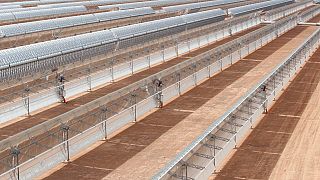Nigeria
Traders at the Esuk Mba market in Calabar, Southern Nigeria are bartering to combat growing inflation.
The ancient practice in the capital of Cross River State was started in 1956 and still operates on a barter trade system, where no money is exchanged for goods.
Effiong Ekpo is has been in the trade for about 20 years.
“I have been trading in this market for about 20 years, I do come here to collect different goods, water-leaf, periwinkles, fish, okra, I will collect them and exchange with what I have.”
Traders sell various produce including vegetables, fruits, fish, and palm oil among others.
Residents say they usually collect money when visitors tour the region or when they sell their goods outside the community.
They only use cash to pay a few bills like school fees.
According to Akpabuyo traditional ruler, Chief Edem Duke, “trade by barter can never be abolished here in Cross Rivers State, in as much as Akpabuyo is concerned and Esuk Mba in general. We cannot abolish the system.”
Swapping one type of goods for another instead of cash is an age-old practice, and has helped combat increasing food scarcity in rural areas in parts of Africa.













02:18
Netherlands returns 119 artifacts looted from Nigeria
Go to video
Evacuations begin: African citizens caught in Israel-Iran crossfire
02:08
Gunman attack in north-central Nigeria: death toll climbs to 150
01:14
Tinubu pardons the Ogoni Nine activists, 30 years after their execution
02:18
Nigerian animation shines at Annecy Film Festival
02:09
In a bid to aid its economy, Lebanon hopes to return to golden age of tourism